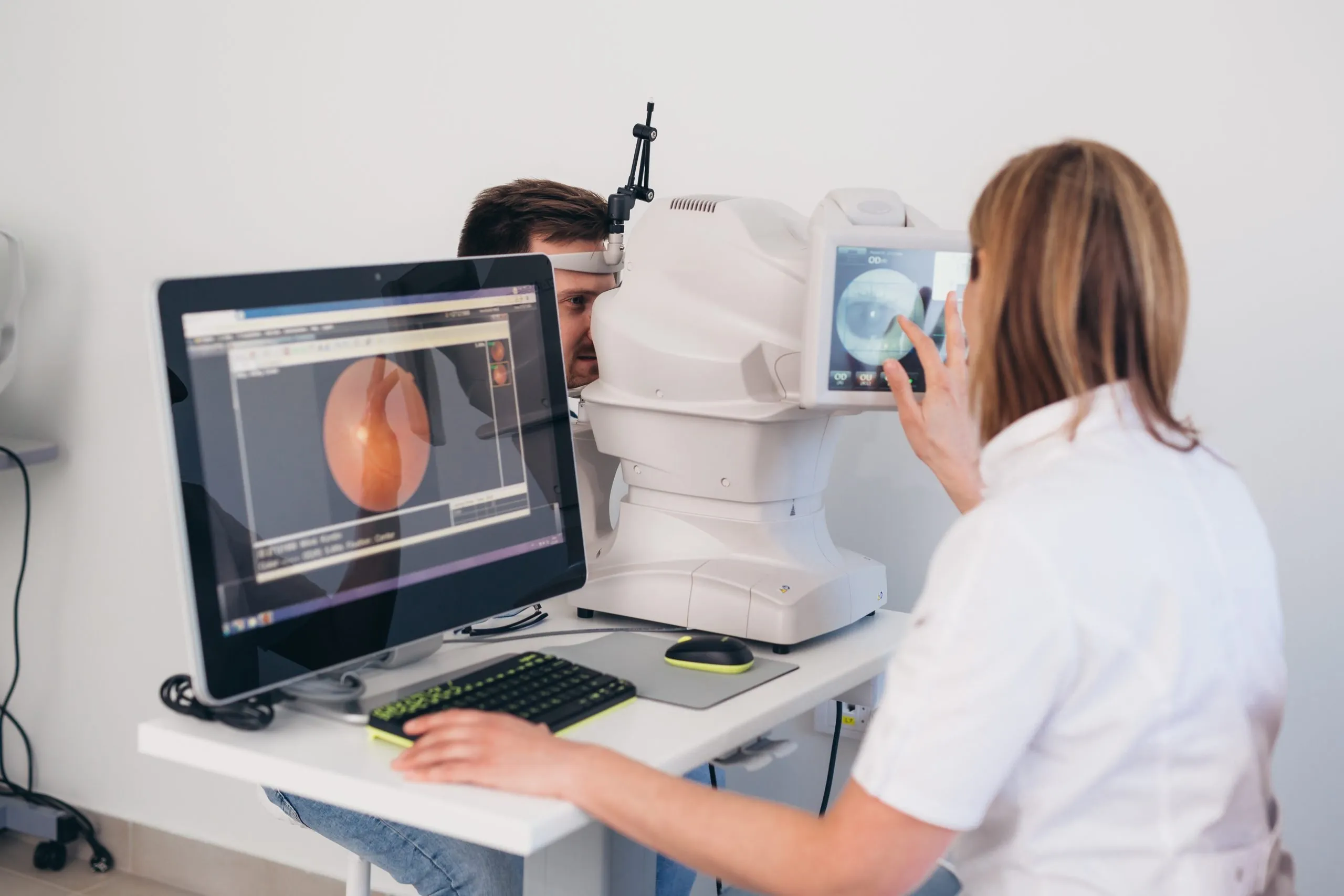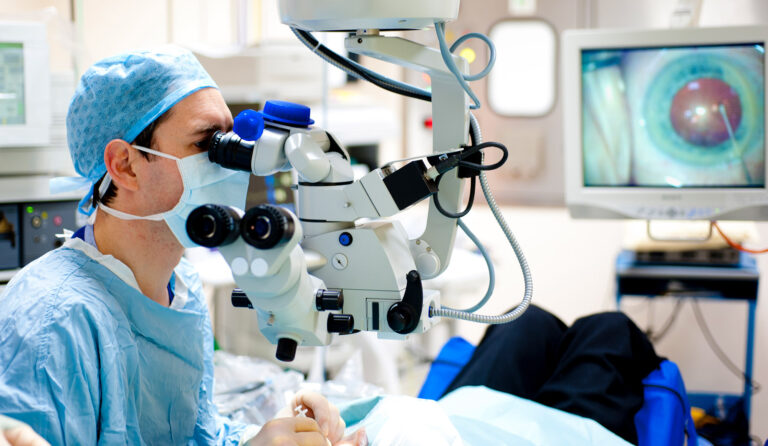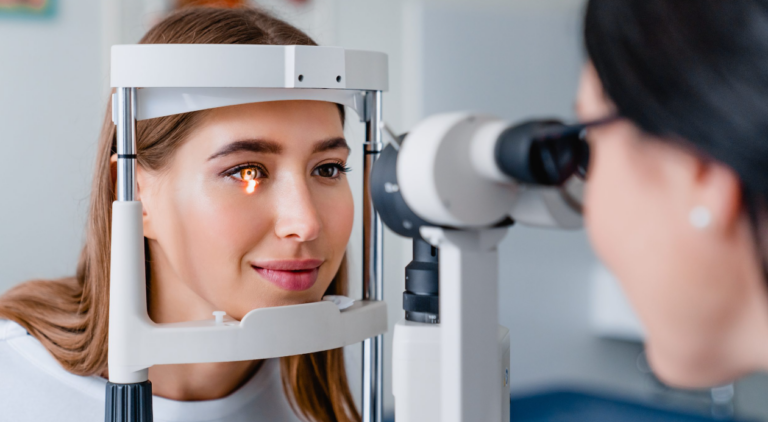Finding the right retinal specialist is crucial for patients experiencing issues related to their vision. A retinal specialist is an ophthalmologist who has specialized training in diseases and surgeries of the retina. Understanding how to locate a qualified professional can make a significant difference in the outcomes of your eye care journey.
Understanding the Role of a Retinal Specialist
Retinal specialists focus specifically on the retina, a layer of tissue at the back of the eye that is crucial for sight. They diagnose and treat various conditions, including retinal detachment, diabetic retinopathy, macular degeneration, and other retinal disorders.
The Importance of Specialized Eye Care
Eye care is not a one-size-fits-all scenario. General ophthalmologists can handle a wide range of eye issues, but when it comes to intricate conditions related to the retina, the expertise of a specialized professional is indispensable. The retina plays a vital role in converting light into images, and any dysfunction can lead to severe vision impairment.
The intricate nature of retinal conditions often requires advanced diagnostic tools and treatments that general eye care providers may not have at their disposal. A specialized approach ensures that you receive tailored care that meets the unique demands of your condition. For instance, retinal specialists utilize cutting-edge technologies such as optical coherence tomography (OCT) and fluorescein angiography, which provide detailed images of the retina and help in the accurate diagnosis of various retinal diseases. These tools enable specialists to monitor changes over time, ensuring that any progression of disease is caught early and managed effectively.
Key Responsibilities of a Retinal Specialist
The responsibilities of a retinal specialist extend beyond just conducting eye exams. They perform a variety of procedures, including:
- Administering injections to treat eye diseases.
- Performing laser surgery to correct retinal issues.
- Conducting specialized imaging tests.
- Monitoring chronic eye diseases over time.
By engaging with a retinal specialist, patients benefit from comprehensive management of their eye health, ensuring timely intervention and effective treatment strategies are employed. Additionally, retinal specialists often collaborate with other healthcare providers, such as endocrinologists for diabetic patients, to create a holistic treatment plan that addresses not just the eye condition but also the underlying health issues contributing to it. This multidisciplinary approach is essential for conditions like diabetic retinopathy, where managing blood sugar levels is crucial for preventing further retinal damage.
Furthermore, education plays a significant role in the practice of retinal specialists. They take the time to explain the nature of the patient’s condition and the rationale behind specific treatment options. This not only empowers patients but also helps in alleviating anxiety associated with complex eye diseases. By fostering a strong doctor-patient relationship, retinal specialists ensure that patients are well-informed and actively involved in their treatment journey, leading to better outcomes and satisfaction.
Identifying Your Eye Care Needs
Before selecting a retinal specialist, it’s essential to assess your own eye care needs. This can help you determine the right professional who can address your specific concerns effectively. Understanding your personal risk factors, family history, and lifestyle choices can also play a significant role in identifying the appropriate care. For instance, individuals with a family history of retinal diseases may need to be more vigilant and proactive in seeking regular eye examinations.
Recognizing Symptoms of Retinal Disorders
Common symptoms that may warrant a visit to a retinal specialist include:
- Blurred or distorted vision.
- Sudden loss of vision in one eye.
- Flashes of light or floaters in your field of vision.
- Dark or empty areas in your vision.
Recognizing these symptoms as potential retinal issues is the first step towards seeking appropriate help. Early diagnosis can be critical in preserving vision and preventing further complications. It’s also important to note that some retinal disorders can progress silently, meaning that regular eye exams are crucial even if you do not experience noticeable symptoms. Conditions like diabetic retinopathy or age-related macular degeneration can develop gradually, making it vital to stay informed about your eye health.
When to Seek a Retinal Specialist
It is advisable to consult a retinal specialist if you have experienced any of the symptoms mentioned above. If you have underlying conditions such as diabetes or hypertension, which can impact the health of your retina, regular check-ups with a specialist are recommended even in the absence of symptoms. These conditions can lead to significant changes in the retinal structure, and monitoring them closely can help mitigate risks.
Additionally, if you have been diagnosed with a pre-existing retinal condition, establishing a relationship with a retinal specialist can provide continuity of care and ongoing management tailored to your needs. This relationship is especially important for individuals undergoing treatments such as injections or laser therapy, where follow-up appointments are crucial for assessing the effectiveness of the treatment and making necessary adjustments. Engaging with your specialist about your treatment plan and any concerns you may have can empower you to take an active role in your eye health journey.
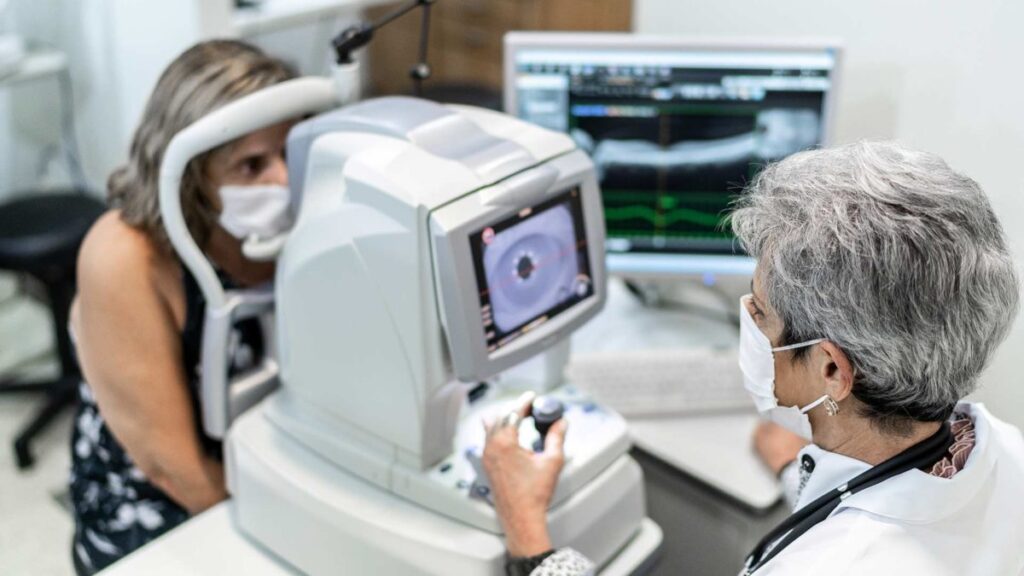
Researching Retinal Specialists
With a clear understanding of your eye care needs, the next step is to conduct thorough research to find suitable retinal specialists in your area.
Qualifications to Look for in a Retinal Specialist
When evaluating potential retinal specialists, crucial aspects to consider include:
- Board certification in ophthalmology and fellowship training in retina.
- Experience with specific retinal disorders.
- Access to advanced diagnostic equipment and treatment options.
- Affiliations with reputable medical institutions.
Ensuring the specialist possesses the necessary qualifications and a strong track record can enhance your chances of receiving high-quality care. It is also beneficial to inquire about their involvement in ongoing education and training, as the field of retinal care is constantly evolving with new technologies and treatment methodologies. A specialist who actively participates in conferences, workshops, and research can bring the latest advancements to their practice, potentially improving patient outcomes.
Utilizing Online Resources for Research
The internet is a valuable tool for researching retinal specialists. Various medical directories, such as the American Academy of Ophthalmology website, offer listings of board-certified specialists. Patient reviews and testimonials can also provide insight into the experiences of others.
Additionally, social media platforms and patient forums can be beneficial for gathering opinions and recommendations. However, always cross-reference information from multiple sources to ensure accuracy and reliability. Engaging in discussions on platforms like Reddit or specialized Facebook groups can also yield personal stories that highlight the nuances of care provided by different specialists. Many patients share their journeys, including the challenges they faced and the successes they achieved, which can help you gauge the level of support and understanding you might expect from a potential specialist.
Evaluating Potential Retinal Specialists
Once you have compiled a list of potential specialists, the next step is to evaluate each one based on specific criteria.
Assessing the Specialist’s Experience and Expertise
Inquire about the specialist’s experience, particularly with cases similar to yours. Understanding how frequently they perform specific procedures and their success rates can provide a deeper confidence in their skill set.
Don’t hesitate to ask about their continuing education. A good retinal specialist stays updated with the latest advancements in the field, which is crucial for providing state-of-the-art care. This can include participation in workshops, conferences, and research, which not only enhances their knowledge but also allows them to share insights with peers and contribute to the broader medical community.
Checking Reviews and Ratings
Reviews and ratings from previous patients are invaluable when selecting a healthcare provider. Websites dedicated to healthcare reviews, such as Healthgrades or Yelp, can provide insights into patient experiences.
Pay attention to comments about communication style, office environment, and overall satisfaction with the treatment received. These factors contribute to the overall quality of care and can significantly influence your experience as a patient. Additionally, consider reaching out to local support groups or forums where individuals share their personal experiences with retinal specialists. This can provide a more nuanced understanding of what to expect and help you make a well-informed decision.
Moreover, don’t overlook the importance of the specialist’s approach to patient care. A compassionate and attentive specialist can make a significant difference in your treatment journey. Look for signs that they prioritize patient education, taking the time to explain diagnoses and treatment options thoroughly, which can alleviate anxiety and foster a trusting relationship.
Making Your Final Decision
After gathering sufficient information and evaluating potential candidates, it’s time to make a decisive choice regarding your retinal specialist. This decision is not just about finding a qualified professional; it also involves considering factors such as location, availability, and the specialist’s approach to treatment. A well-chosen retinal specialist can make a significant difference in your overall experience and the effectiveness of your care.
Preparing for Your First Appointment
Preparation is key to maximizing your first appointment with a retinal specialist. Before the visit, compile all relevant medical records, including previous eye exams and treatments. Make a list of symptoms, medications, and any family history of retinal diseases to provide a thorough overview during your consultation. Additionally, consider jotting down any questions you may have about the diagnosis, treatment options, and what to expect moving forward. This proactive approach not only demonstrates your engagement in your health but also ensures that no important topics are overlooked during your discussion.
Being well-prepared enhances the effectiveness of your appointment and helps the specialist tailor their approach to your unique situation. Remember that this is a collaborative process; the more information you provide, the better equipped your specialist will be to address your specific needs. Furthermore, consider bringing a family member or friend along for support, as they can help you remember details and ask questions you might not think of in the moment.
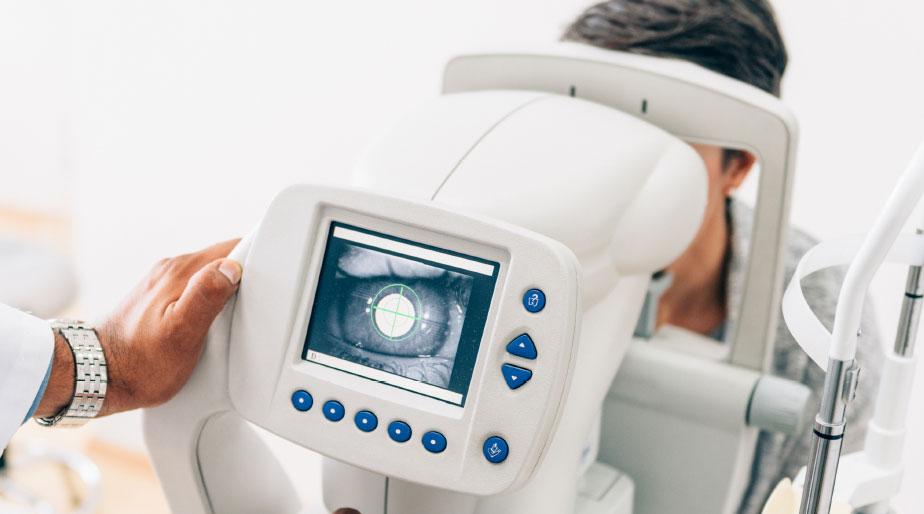
Establishing a Comfortable Patient-Doctor Relationship
A successful treatment experience often hinges on the relationship between a patient and their doctor. During your initial visit, assess how comfortable you feel with the specialist. It’s essential to choose someone with whom you can communicate openly and who listens to your concerns. Pay attention to how the specialist explains complex medical terms and whether they encourage questions. A good doctor will take the time to ensure you understand your condition and the proposed treatment plan, fostering a sense of partnership in your care.
If you feel at ease discussing your symptoms and treatment options, the chances of a successful outcome are significantly increased. Trust your instincts, and don’t hesitate to seek another opinion if something doesn’t feel right. Building a rapport with your retinal specialist can lead to a more personalized treatment experience, where you feel valued and understood. This relationship can also provide emotional support during challenging times, as navigating eye health issues can often be daunting.
See Also: Comprehensive retinal eye care: treatment options for vision health.

